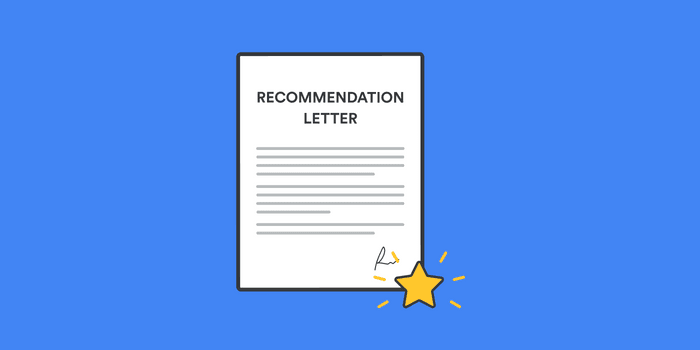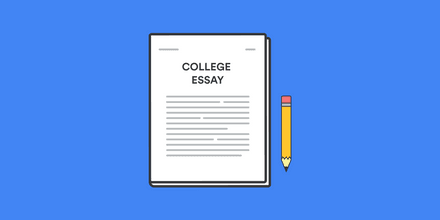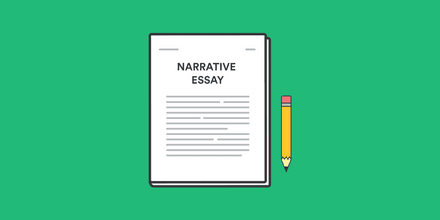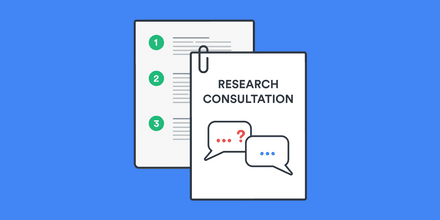
A good recommendation letter can make or break your college or grad school application. In this post, we define what a letter of recommendation is and provide instructions on how to ask for one.
What is a letter of recommendation?
When you apply to a college or graduate school, your application will likely require letters of recommendation, in addition to an essay and an application form.
These letters support your application by verifying that you have the qualities and skills that the program requires. A recommendation letter will commend your abilities and discuss why you’re a good fit for the college, school, or program.
Recommendation letters are typically 1-2 pages, but may be longer. In most cases, letters will need to be sent directly to the school from the recommender. Candidates are often asked to “waive their right” to see the letter. This ensures that the letter cannot be altered by the candidate and protects the privacy of the letter writers.
Letters of recommendation often discuss your academic history, personal attributes, and achievements. Some programs may require more specific information, so be sure to keep track of the program’s application requirements.
Who to ask for a recommendation letter
Since a letter of recommendation should assess your academic background and achievements, you should ideally ask a current or former teacher, instructor, or advisor.
Consider the following when choosing recommenders:
- Select a recommender with whom you have a good relationship. Make sure to choose someone who has the enthusiasm and candor to give you a positive letter of recommendation.
- Ideally, your recommender should have known you for at least six months to one year.
- If you’re applying to a specific program or field, you should try to choose a recommender who has some expertise in that subject. For instance, if you’re applying for a marketing degree, you might ask a marketing professor for a recommendation.
Since most applications require around 3 letters per candidate, you should make a list of at least 3 recommenders that you’d like to contact. You should also choose a few alternate contacts in case the first potential recommenders who you approach are unable to write a letter.
If your first choice for a recommender denies your request, thank them for their consideration and continue working through your list. And, remember, if a recommender is unable to write a letter, don’t take it personally: they are probably just too busy!
How to structure a recommendation letter
A typical recommendation letter has the following sections:
- Introduction: This section usually starts with “I write to recommend…” and provides a general overview of the candidate's strengths. Most letter writers will also discuss their relationship with the student and the length of time that they have known each other.
- Body: In the main body of the letter, the recommender will describe the candidate’s skills, character traits, and academic achievements and how those things make the candidate a good fit for the program or school. This section will typically include concrete examples or anecdotes that demonstrate the student’s strengths.
- Closing: Most recommendation letters close by directly stating the writer’s support for the candidate. For example, “Jane has my highest recommendation and I very much hope that the committee judges her application favorably.”
Academic recommendations should generally be written on letterhead. Many schools will also require recommenders to fill out an accompanying form. This form could include anything from the letter writer’s contact information to a set of general questions that ask the writer to rank a candidate based on certain attributes like “likelihood to succeed.”
How to request a recommendation letter
In this section we provide strategies and instructions for how to ask for a recommendation letter.
What you should include in a request for a recommendation letter
1. A brief introduction
In most cases, you’ll approach your potential letter writers via email. As a result, you’ll want to write a concise message that contains the information that the recommender needs to write a solid letter. The best practice is to provide the letter writer with as much information as possible up front. You want to make it super easy for the writer to compose the letter.
Consider these best practices for recommendation letter requests:
- Use a clear subject line like “Recommendation Request.” If it’s been awhile since you’ve interacted with the instructor or advisor, you might want to include your full name in the subject line.
- Send the email from a school or institutional email address, whenever possible. A message sent from a personal email address might go the the recipient’s spam folder.
- Use a nice salutation like “Hi Dr. Smith,” or “Dear Professor Jones.”
- If you haven’t had the professor recently, or if you’ve only had the instructor once, you might want to start by mentioning the most recent class you took with them. Otherwise, you can launch right into the main object of the request.
- Clearly and succinctly describe the program(s) you’re applying to, what will be required of the letter writer, and the relevant deadlines. If you’re applying to multiple programs, you might consider including this information in a separate document, like a spreadsheet, that the recommender can reference going forward.
- Always include an actual question about whether or not the professor can write you a letter. In most cases, if you have a good relationship with the professor, then they will likely agree—but you want to be respectful of their time and commitments.
2. All relevant documents
You should attach any relevant documents to the email request. These include:
- Recommendation letter requirements: If there are any additional forms that the recommender needs to submit along with the letter, make sure you attach those.
- Curriculum vitae (CV) or resume: Some programs require you to submit a CV or resume along with your application. Even if it’s not required, consider sending one to potential recommenders. This will provide them with a great overview of your experiences and accomplishments.
- Personal statement or narrative essay: If the program you’re applying to requires a personal statement or essay, definitely attach that to your email request. This will help your letter writers understand why you’re applying and will provide them with information that they can reference in their letters.
Again, it’s best to provide as much information as you can up front in order to limit the number of emails you need to exchange.
Timing
As soon as you’ve narrowed down what schools or programs you’re applying to, you’ll want to begin contacting prospective letter writers. Potential recommenders need ample time to read over your materials and to write quality letters. To do so, they’ll need to carve out some time on their calendars, so the sooner you can contact them, the better!
Some professors may want to meet with you to discuss your plans and to offer advice about the application process. If this is the case, plan to have this meeting several weeks in advance of the deadline.
Submission
Most schools require recommenders to submit their letters electronically. When you fill out the application, the system will likely ask you for the contact information of your letter writers. This will automatically trigger an email to those writers that provides them with the submission details.
In almost all cases, the recommenders will receive a link to a secure system to which they can upload their letters. Upon submission, both the candidate and the letter writer will receive an email that confirms that the letter has been submitted.
Follow-up and thank you
If the deadline is approaching and you haven’t received confirmation from either the school or the recommender that the letter has been submitted, a friendly follow-up email may be necessary. Be tactful and kind—most professors will thank you for the reminder!
Recommenders love to hear about the outcome of your process. You should plan to send a “thank you” email (or a physical card) at some point after you’ve heard back from the school(s). Even if the outcome isn’t positive, you should still thank your letter writers for their time and support.
Frequently Asked Questions about letters of recommendation
✉️ What should a letter of recommendation include?
A typical recommendation letter has the following sections:
- Introduction: This section usually starts with “I write to recommend…” and provides a general overview of the candidate's strengths. Most letter writers will also discuss their relationship with the student and the length of time that they have known each other.
- Body: In the main body of the letter, the recommender will describe the candidate’s skills, character traits, and academic achievements and how those things make the candidate a good fit for the program or school. This section will typically include concrete examples or anecdotes that demonstrate the student’s strengths.
- Closing: Most recommendation letters close by directly stating the writer’s support for the candidate. For example, “Jane has my highest recommendation and I very much hope that the committee judges her application favorably.”
📎 Who can be a recommender?
Consider the following when choosing recommenders:
- Select a recommender with whom you have a good relationship. Make sure to choose someone who has the enthusiasm and candor to give you a positive letter of recommendation.
- Ideally, your recommender should have known you for at least six months to one year.
- If you’re applying to a specific program or field, you should try to choose a recommender who has some expertise in that subject. For instance, if you’re applying for a marketing degree, you might ask a marketing professor for a recommendation.
📝 How should I ask for a letter of recommendation by email?
Write a concise message that contains the information that the recommender needs to write a solid letter. The best practice is to provide the letter writer with as much information as possible up front. You want to make it super easy for the writer to compose the letter.
⏳ Is two weeks enough time to ask for a letter of recommendation?
Typically, no. You should give your recommenders as much time as possible to read through any relevant materials and to write your letters. Most recommenders appreciate at least one month’s notice.
📌 How do I approach a teacher/professor for a letter?
Start by sending an email in which you clearly and succinctly describe the program(s) you’re applying to, what will be required of the letter writer, and the relevant deadlines. Also, include all relevant documents, such as your personal statement or CV.


